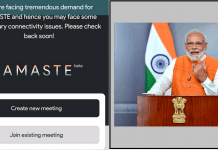According to a report by, The Consumer Complaints Council (CCC) of the Advertising Standards Council Of India (ASCI), 62 major commercial advertisements have been banned due to complaints regarding misleading or inappropriate content by consumers and various forums.

The 62 advertisements which are executed, comprise of 23 from the Healthcare category, 17 from the Education category, and 10 from the Food and Beverages category. Rest were majorly into other non-substantial categories.
Any advertisement in India has to be aligned to the specific policies of The Advertising Standards Council of India.
And if any commercial in the country, that is released goes against or not fulfills the basic terms and conditions of ASCI, it is deemed as objectionable. a person can write to ASCI with their complaint. This complaint will be deliberated on by the CCC after providing due process to the advertiser to defend the ad against the complaint and depending on whether the ad is in alignment with the ASCI code and law, the complaint is upheld or not upheld; if upheld, the ad is voluntarily either withdrawn or modified.
On the same hand, a common man can also directly write to ASCI with any such complaint.
The 62 commercials that are banned belong to such regulatory breaches and majority of them were accused of containing irrelevant or misleading content, ie, the products don’t deliver services in the way they were projected in their respective commercial ads.
This mass banning includes commercials of corporate titans like: Honda Motorcycles and Scooter P Ltd (for Honda Activa 4G), Voltas Limited (for Volstar All Star Inverter AC), Hindustan Unilever Ltd (for Ayurvedic Anti-Dandruff Ayush Shampoo), Emami Ltd (for Kesh King Shampoo and Kesh King Ayurvedic Oil), Coca Cola India Inc (for Thumps Up, Sprite, Fanta and Maaza), Narang Group (for Ocean Active Water) and PepsiCo Indian Holding Private Ltd (for Pepsi Gatecrash), and many others.
For instance:
In case of, Hamdard Laboratories:
The advertisement of Hamdard Safi blatantly claims: “giving your liver, thyroid, and… the support they need…” along with projected expert’s opinions to certify the representation. But, it was concluded that specific claims in the advertisement relating the efficacy of the product in respect of liver and thyroid functioning were not adequately with clinical data, this was deemed misleading.
Another major name in that list is Pepsico India Holding Pvt. Ltd.:
It was reported that the font size of the disclaimer in the upheld commercial was 6 which is majorly unreadable. Thus, it was deemed inappropriate under the allegation of violating the ASCI Guidelines for Disclaimers by using a significantly smaller font for the disclaimers in the TV advertisement.
The execution has been pan-economy and covered a plethora of business segments right from FMCGs to Automobiles.
One major name that struck out was the Automobile giant Honda Motorcycle and Scooter India P. Ltd. for its Honda Activa 4G ad:
The ad shows the pillion rider wearing a helmet without the ISI mark. Thus, it was concluded that the advertisement violated the essential provisions of Chapters III.3 and III.4 of the ASCI Code.
Apart from the aforementioned the list also includes names like Times, Mankind, Royal Stag, Emami etc.
This step has put a major pressure and has drawn a tight slap on the faces of those who took advertising for granted.
When a firm deliberately makes false claims, it risks itself to face severe legal and financial repercussions, from both regulatory bodies and the customer-base. Also, it put its reputation on the stake and loses the customers’ trust.
This is a remarkable step that pointed out the deformities of the relevant industry and we here at Corporate Bytes recommend everyone to complain against any such similar cases if found any.









